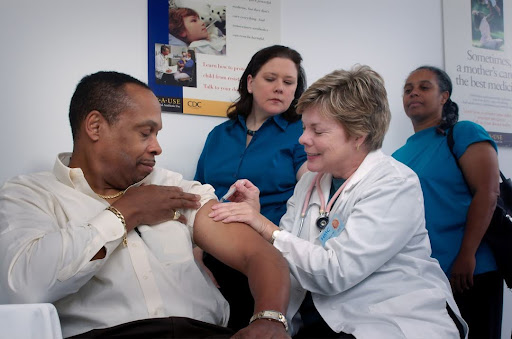
Patient safety remains a core concern within the healthcare industry, with medical errors presenting a serious challenge to health outcomes worldwide. Ensuring the well-being of patients by minimizing risks and preventing mistakes necessitates a multifaceted approach, including the specialized expertise of healthcare consultants. These professionals play a pivotal role in analyzing, recommending, and implementing measures designed to improve care delivery and patient safety. As we explore the vital part that healthcare consulting plays in this crucial aspect of medical care, the dynamics of how consulting can lead to tangible improvements will become clear. So, if you are interested in how healthcare consulting is transforming patient safety, keep reading.
The Influence of Healthcare Consulting on Patient Safety Initiatives
Consulting firms bring a wealth of experience and knowledge to patient safety initiatives, tailoring their approach to meet the specific needs of healthcare institutions. By identifying process gaps and recommending improvements aligned with best practice guidelines and regulatory requirements, they help prioritize safety initiatives for maximum impact and efficiency. Consultants use risk assessment tools to evaluate potential errors comprehensively, ensuring thorough scrutiny of every aspect of patient care.
Engaging with an ECRI healthcare consulting company can lead to the adoption of advanced technologies, such as electronic health records with embedded clinical decision support tools that aid in error prevention. Consultants also assist in the change management process, fostering staff acceptance and facilitating the implementation of a just culture. This cultural shift encourages transparency and open communication about errors, allowing proactive responses to potential safety issues without fear of punitive consequences.
Understanding Patient Safety and Medical Errors in Healthcare
Patient safety is crucial in healthcare, preventing unintended harm to patients. Medical errors, ranging from medication mishaps to surgical complications, can be prevented with proper safety protocols. As modern medicine becomes more complex, the risks associated with medical errors increase, necessitating robust practices.
Healthcare consulting offers valuable insights into understanding and mitigating these risks, analyzing trends, assessing potential failure points, and working with institutions to create targeted mitigation approaches. A proactive approach is essential to address potential errors before they occur. Consultants also play a crucial role in educating and training healthcare providers about best practices, staying updated on research and innovative strategies. This knowledge enhances staff awareness, leading to improved care and patient safety.
Strategies Healthcare Consultants Use to Identify and Prevent Medical Errors
Healthcare consultants employ various strategies to reduce medical errors. They conduct comprehensive audits and process evaluations to identify discrepancies and inefficiencies, ensuring protocols uphold the highest standard of patient safety. They also use simulation training to prepare clinicians for real-world scenarios, reducing human error and fostering confidence among practitioners.
Data analytics helps identify trends and patterns in large patient data sets, enabling proactive risk management and customizing patient safety strategies. Implementing a patient safety reporting system is crucial for identifying risk areas and developing preventive strategies. Consultants not only set up these systems but also train staff on their importance, fostering a culture of safety and accountability.
Measuring the Impact of Healthcare Consulting on Patient Safety Outcome

Healthcare consulting has proven successful in improving patient safety through quantifiable outcomes and positive transformation of institutional cultures. The impact of consulting is measured by the reduction of preventable medical errors and patient satisfaction scores, which indirectly assess how safety improvements are perceived by patients. Enhanced safety often correlates with increased trust and satisfaction, which is crucial for the reputation and financial sustainability of healthcare providers.
Consulting interventions also impact the adoption of best practices across the healthcare institution, improving staff engagement and morale. The catalyzing role of healthcare consulting is seen in collaboration and coordination among different departments and specialties, fostering a unified approach to patient safety, ensuring high-quality healthcare delivery.
Future Trends in Patient Safety: Integrating Consulting Insights and Technology Solutions
Healthcare consulting is integrating insights with advanced technology solutions to improve patient safety. Artificial intelligence, predictive analytics, and machine learning are being used to prevent medical errors and offer real-time decision support. Telemedicine and remote patient monitoring are also emerging, with consultants helping organizations navigate these new territories.
The digital transformation of healthcare holds immense promise but requires careful consideration to maintain patient safety and privacy. The use of wearable technology and mobile health apps can also improve patient safety outcomes. Healthcare consulting will continue to guide organizations through evolving regulatory requirements, ensuring compliance and ensuring quality patient care.
Overall, healthcare consulting significantly impacts patient safety by bridging knowledge gaps and preventing medical errors. Collaboration between consultants and healthcare providers ensures future patient safety, with every initiative and technological advancement advancing healthcare delivery excellence.



